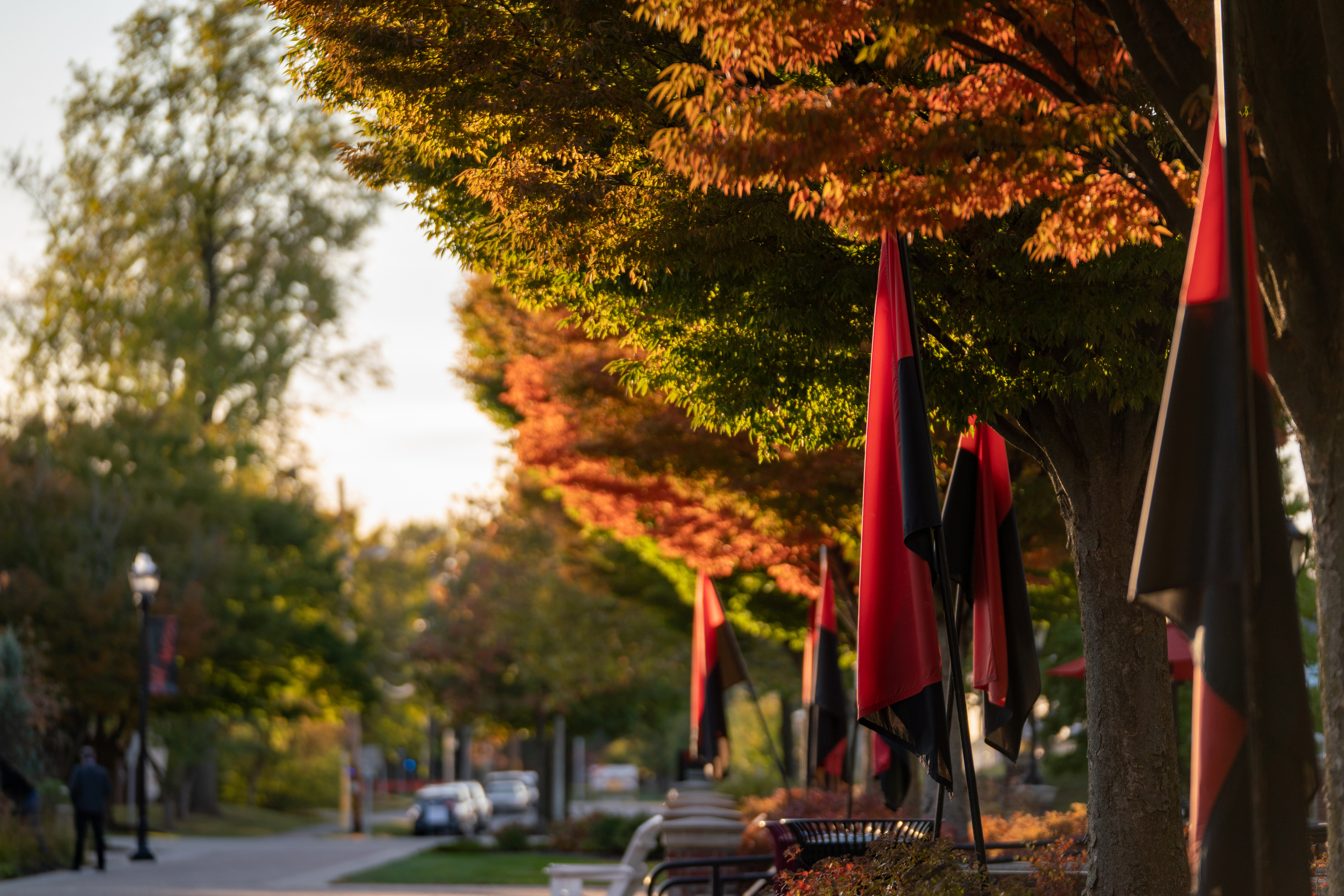Connor Severino and Katie Cantrell
Transcript correspondents
cmseveri@owu.edu
kmcantre@owu.edu
Work remains consistent for some Ohio Wesleyan staff as they adapt to remote employment, but others must now use vacation time and sick leave to compensate for an insufficient amount of tasks and assignments.
When OWU sent employees packing to their homes earlier this month, it guaranteed all staff would receive two weeks full pay even if they could only do a limited amount of work remotely.
Last week, the university asked all staff, salaried and hourly, to use sick leave or vacation time for any hours not spent working during a normal work time. All employees are required to document the number of hours they put in each week.
In an administrative report last week, OWU President Rock Jones said that as the state’s shelter-in-place orders remain in place, the school will continually monitor OWU’s finances and decide later if it will need to implement additional cost-reduction measures.
“Our goal is to not engage in staff reductions through furloughs or layoffs prior to completion of the administrative program review,” Jones wrote. “However with financial pressure growing and with the need to preserve cash, it may be necessary to look to more immediate reductions on compensation costs.”
OWU, like many colleges right now, is reeling under the crushing weight of lost revenue with no end in sight. Nonetheless, the school is doing its best to map out a course to continue to help students and staff, said Cole Hatcher, OWU’s director of Media and Community Relations.
“The global impact in all sectors is astounding,” Hatcher said. “(We are) canceling the 2020-2021 tuition increase and cutting the cost of online summer-session classes for students, and working to avoid COVID-19-related layoffs and furloughs for employees.”
Hatcher said the transition to remote work was relatively uneventful.
“It actually has been a relatively smooth transition because the IT Department was very proactive and helpful about getting staff set up with access to shared drives and virtual meetings,” Hatcher said.
While the conversion may have gone well, not everyone has a full to-do list, said Joette Kugler, an administrative assistant for the education and journalism departments.
“If there’s not enough work we have to use sick or vacation time,” Kugler said. “It is easy for those who have built that up over the years, but not so much for the more recent staff hires.”
Kugler is not a fan of working from home and she said she misses the personal touch.
“I feel out of touch, not getting to see faces on a daily basis and having students walk into my office needing assistance,” she said.
Dina Daltorio, the assistant director of Student Involvement, agrees working remotely is a big adjustment, but benefits do exist.
“It is different not seeing students, staff and faculty every day, but now we just connect over phone and video calls.” Daltorio said. “Also, my commute has definitely decreased and I have been able to drink my coffee out of a mug and not a to-go cup.”
| “I feel out of touch, not getting to see faces on a daily basis and having students walk into my office needing assistance.” – Joette Kugler, administrative assistant for the education and journalism departments |
Some employees, however, still do go to campus.
The mail room has three people handling as much of their work as possible remotely from home, but no more than one person will go to campus occasionally to quickly check on incoming mail. It’s kept to one to ensure social distancing protocol is observed, said Jill Kerins, manager of Print and Mail Services.
Kerins understands how some employees working from home likely have a less crowded schedule and maybe half the work load.
“I am at home as much as I can be,” Kerins said. “Work has mostly been keeping up with staff mail, but I now have time to work on other things such as web submissions and getting up to date on job descriptions.”
The work load varies from department to department. For instance, staff in the Career Connection office are busier than ever, said Meghan Ellis, the department’s executive director.
In an office that relies heavily on in-person communications, it’s been a big adjustment to move to web seminars connecting students with OWU alumni, who can offer life and career advice and showcase their own work skills.
“Surprisingly since all this started we have seen an increase in student participation within the department and the highest student career involvement among the GLCA (Great Lakes Colleges Association) schools” Meghan Ellis said.
Ellis juggles her OWU work with being a parent, teacher, chef, coach and babysitter for her two second graders.
But her OWU job is also critical because the entire staff is working alongside everyone in the community to ensure everyone remains safe and attended to, but also making sure students feel supported, Ellis said.
“I am just so thankful that I work with people who are open to all life and supportive of one another as one community,”she said.
To help display that support and keep those connections, media director Hatcher said he has tried to enhance the OWU Daily with a “Daily Dose of Fun” and a photo of campus or a fun meme “to help us all feel connected while apart.”
